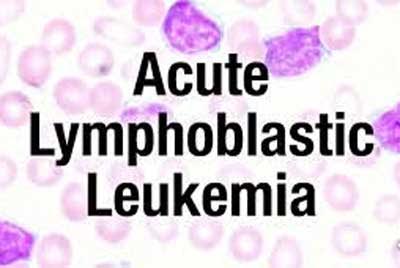- Home
- Editorial
- News
- Practice Guidelines
- Anesthesiology Guidelines
- Cancer Guidelines
- Cardiac Sciences Guidelines
- Critical Care Guidelines
- Dentistry Guidelines
- Dermatology Guidelines
- Diabetes and Endo Guidelines
- Diagnostics Guidelines
- ENT Guidelines
- Featured Practice Guidelines
- Gastroenterology Guidelines
- Geriatrics Guidelines
- Medicine Guidelines
- Nephrology Guidelines
- Neurosciences Guidelines
- Obs and Gynae Guidelines
- Ophthalmology Guidelines
- Orthopaedics Guidelines
- Paediatrics Guidelines
- Psychiatry Guidelines
- Pulmonology Guidelines
- Radiology Guidelines
- Surgery Guidelines
- Urology Guidelines
Cancer genomics: Addressing treatment resistance in childhood acute lymphoblastic leukemia

In the third week of PLOS Medicine's ongoing special issue on cancer genomics, principal investigator Jules Meijerink of the Princess Máxima Center for Pediatric Oncology, Utrecht, The Netherlands and colleagues seek to identify mechanisms underlying treatment resistance in children with T-cell acute lymphoblastic leukemia (T-ALL) by combining genomic DNA sequencing and chromosomal copy-number analyses, and suggest a new approach to therapy.
Treatment of childhood leukemia has improved markedly in recent decades, with long-term cure achieved in most patients who have access to modern, highly intensive treatment regimens. However, some patients develop resistance to the steroid drugs which are a key part of combination chemotherapy treatments, which results in poor clinical outcomes. As described in their Research Article, Meijerink and colleagues studied genetic changes in leukemic cells from pediatric T-ALL patients before treatment. The researchers found specific gene mutations affecting signaling inside cells, involving the interleukin 7 receptor and downstream molecules, that were associated with steroid resistance and adverse clinical outcome. Drugs designed to target individual signaling proteins were able to restore steroid sensitivity to primary leukemic cells from patients.
Discussing the research in an accompanying Perspective article, Steven Goossens and Pieter Van Vlierberghe conclude that "inhibition of MEK-ERK or PI3K/AKT/mTOR signaling could enhance steroid sensitivity in T-ALL and potentially improve patient outcomes, a notion that warrants investigation in future prospective clinical trials."

Disclaimer: This site is primarily intended for healthcare professionals. Any content/information on this website does not replace the advice of medical and/or health professionals and should not be construed as medical/diagnostic advice/endorsement or prescription. Use of this site is subject to our terms of use, privacy policy, advertisement policy. © 2020 Minerva Medical Treatment Pvt Ltd